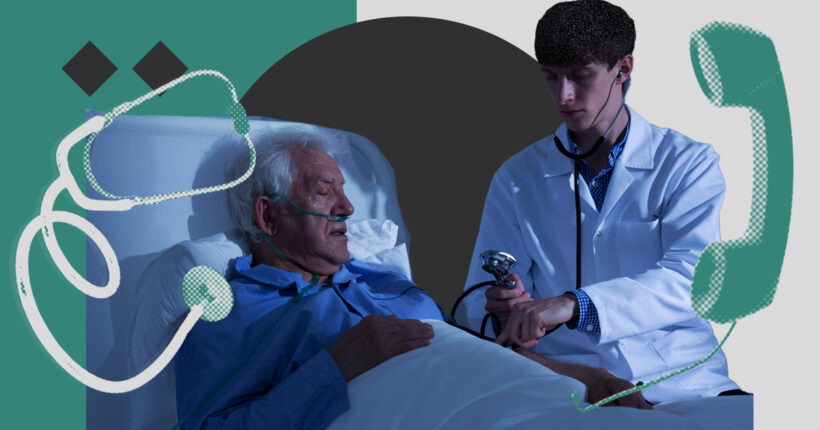
What is the problem?
Palliative care is a type of medical care for individuals who cannot be cured. The main focus of palliative treatment is to provide anesthesia and relieve symptoms as much as possible for these patients.
Despite the state's assistance, it is often inadequate in quantity and quality. The war has led to a growing number of individuals in need of palliative care, but Ukraine is still navigating this issue.
What is the solution?
SVOYI charity fund organized trips to the theater and concerts for patients
The SVOYI charity fund has operated since 2014, initially focusing on assisting the displaced people from the Donetsk and Luhansk regions. Later on, it expanded its support to aid in healthcare directly.
"We decided to focus on adult oncology out of all the possible directions, as it was the most challenging for people who had left. Remember that there was no Medical Guarantee Program or medical reform then. Oncology often leads to the need for palliative care, as, unfortunately, not all cancer patients can be cured. This is why we launched our palliative care program in January 2019," explains Iryna Koshkina, executive director of the SVOYI charity fund.
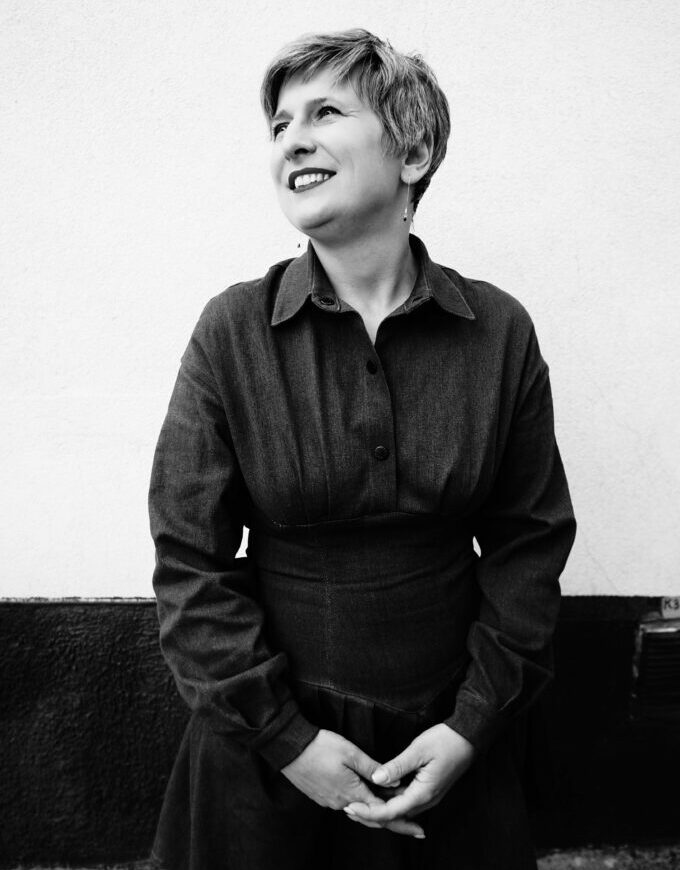
In the photo: Iryna Koshkina, executive director of SVOYI charity fund. Photo from the website of the organization
SVOYI is one of the few charitable foundations in Ukraine with a medical practice license. The foundation's main focus is to provide outpatient palliative care, offering a mobile service with a doctor, nurse, and psychologist. This service is available for people in Kyiv and the surrounding areas, and consultations can be provided through video links for those in need. Additionally, the doctor gives recommendations to patients so that they can consult with their family doctors to adjust medication intake, among other things.
Iryna Koshkina explains: "Typically, patients prefer to spend their final days in the comfort of their own home. Our job is to help palliative patients understand that their loved ones are by their side, that they are free of pain, and that their needs are being taken care of. If they can move, they have access to a toilet seat. For those who are bedridden, we provide a functional bed. If needed, the nurse can insert a catheter or administer a drip at the patient's home."
Before the full-scale war, foundation employees took patients to the theater and concerts. Once a lying-in patient was transported in her bed directly to the concert venue, she could enjoy the music before being taken back to her home in her bed.
Currently, the biggest portion of the expenses is allocated to pain relief
With the start of the full-fledged war, the fund saw many patients. Iryna Koshkina remembers that in 2019, there were 211 patients in this area of the fund for the entire year, but as of August 1, 2023, there were already 716 new patients.
Zoya Maksymova, medical director of the mobile palliative care service of the SVOI charity fund, says: "There are many patients now, and the situation is even worse for internally displaced persons due to the war. This includes not only chronic and oncological diseases but also post-stroke patients. There have been instances where family members have gone abroad and left their elderly parents behind, and some elderly individuals have been left without any support at all.
We had a patient with diabetes who seemed to experience a sudden spike in her blood sugar and collapsed at home. By the third day, her neighbors were becoming concerned, and upon our arrival, we found her bedridden with bedsores. We also have patients from the military with various conditions, such as cancer, amputations, tracheostomies, and gastrostomies."
The fund has noticed a rise in the number of people requesting assistance due to their inability to afford necessary items like diapers.
"People don't have money now," Iryna Koshkina states.
She also remembers the disastrous situation with anesthesia during the first month of the great war. On the one hand, people could not access their doctors to obtain prescriptions; on the other hand, a government decree had frozen local budgets, while funding for pain relief for terminally ill patients was only available through these budgets. As a result, people were left to find ways to numb their pain on their own. Currently, the average person requires 12-13 thousand hryvnias per month for pain management.
The situation has changed on a state level, mainly due to the efforts of the foundation's employees, but currently, most of the public's requests to the SVOYI fund are for pain relief.
It's challenging to raise funds for palliative care during times of war. Fortunately, the foundation can acquire some of their diapers, medical supplies, and food through humanitarian aid abroad.
The SVOYI charity fund executive director explains:
"While it's not everything, certainly not everything, the bulk of our expenses go towards pain relief payments. It's a considerable amount, and unfortunately, many patients cannot access pain relief through local budgets."
How does the state provide palliative care services?
Iryna Koshkina, the executive director of the SVOYI charity fund, believes that the state's provision of palliative services is low, mainly because numerous primary healthcare centers have signed contracts with the National Health Service to provide mobile care this year.
"In simpler terms, these polyclinics have made agreements. It's not too difficult for them to meet the conditions of the contract since a large amount of equipment is not needed for a mobile team. The National Health Service requires doctors to work at their assigned clinic primarily, and the polyclinic can easily meet this requirement as most of their doctors work there regularly," Iryna Koshkina explains.
What is wrong here? "The contradiction is embedded from the very beginning because palliative care is not primary care," specialists of the SVOYI charity fund insist.
"When a hospital is contracted for both inpatient and outpatient care, it signifies a certain level of expertise among the doctors. However, when a state healthcare facility only contracts for mobile services, there is some concern, particularly if it is a primary care center," Iryna Koshkina further explains.
She adds, "Regarding secondary and tertiary medical care, numerous hospitals have established palliative departments, with varying degrees of success. Unfortunately, doctors often only learn about palliative care through patient interactions, as their theoretical knowledge may be limited. In contrast, the level of understanding among polyclinic doctors is unequal, even if they have received specialized training in palliative care."
Iryna's words are supported by statistics from appeals to their charitable fund, which show a significant increase since the introduction of mobile palliative care services by primary medical care centers.
"I've encountered situations where patients call and tell us, 'The mobile team from the polyclinic won't come to us because they don't have a vehicle.' However, having a car is a requirement for providing these services! Needless to say, the situation is far from ideal. There seems to be a problem with the mobile assistance this year," Iryna Koshkina reveals.
 In the image: Excerpt from the requirements for a medical institution to set up mobile palliative care. The importance of having a vehicle is highlighted.Zoya Maksymova, the medical director of the mobile palliative care service at the SVOYI charity fund, also notes a concerning issue: "A family doctor may work until 12 o'clock as a primary physician and then, on paper, become a palliative care doctor. Unfortunately, some doctors may only document these cases without actually visiting the patients."
In the image: Excerpt from the requirements for a medical institution to set up mobile palliative care. The importance of having a vehicle is highlighted.Zoya Maksymova, the medical director of the mobile palliative care service at the SVOYI charity fund, also notes a concerning issue: "A family doctor may work until 12 o'clock as a primary physician and then, on paper, become a palliative care doctor. Unfortunately, some doctors may only document these cases without actually visiting the patients."
The SVOYI charity fund also mentions various instances of state healthcare facilities offering exceptional inpatient care, such as the palliative units at hospitals in Kyiv and departments in the Rivne and Lviv regions. According to Iryna Koshkina, notable progress is happening in these regions, particularly in hospital settings.
What is the connection between the palliative services offered by the SVOYI fund and the government? "Although we have a license, we do not currently have a contract with the National Health Service of Ukraine. However, we hope to secure a contract for mobile palliative care next year during the contracting window. This will allow us to demonstrate the success of our services. Currently, we are functioning without official recognition. We manage all our patients through the electronic healthcare system, but the National Health Service cannot access this data. Their statistics are only based on contracts made under the medical guarantee program," explains Iryna Koshkina.
Furthermore, the foundation's representatives have been included in the group of freelance experts for the National Health Service for multiple consecutive years. According to the fund's executive director, they urge the NHS to revise their service package requirements and avoid solely focusing on numbers, as current results are only satisfactory on paper.
"In palliative care, the word "team" is the most important"
According to Zoya Maksymova, the medical director of SVOYI charity fund's mobile palliative care service, there is currently significant interest in providing palliative care due to the generous compensation offered by the government. To be eligible for these benefits, specialists must complete a two-week specialized training course.
"In my opinion, it should be longer because a doctor who has only completed a two-week course will not have adequate training in administering anesthesia," Zoya Maksymova asserts.
Iryna Koshkina also adds, "Pain relief is a highly individualized process tailored to each specific patient and type of pain. Effective pain relief is an art. Doctor Zoya Maksymova is a talented specialist and one of the top experts in the country when it comes to prescribing appropriate and effective pain relief measures."
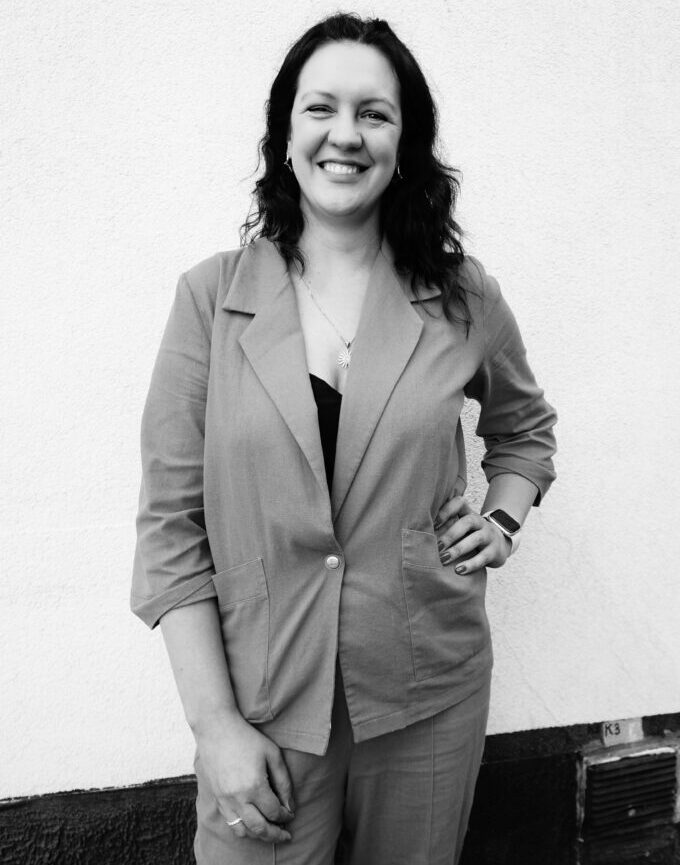
In the photo: Zoya Maksymova, medical director of the mobile palliative care service of the SVOYI charity fund. Photo from the website of SVOYI
Zoya Maksymova has been working in palliative care for over a decade, having joined the department right after completing her university studies.
Zoya Maksymova recently had the chance to learn about Israel's approach to offering palliative care. Specifically, she visited a separate department for palliative care within one of the buildings at the "Hadassah" medical center. In another building, a larger inpatient facility, there is not a designated department but a team consisting of a palliative care physician and two nurses.
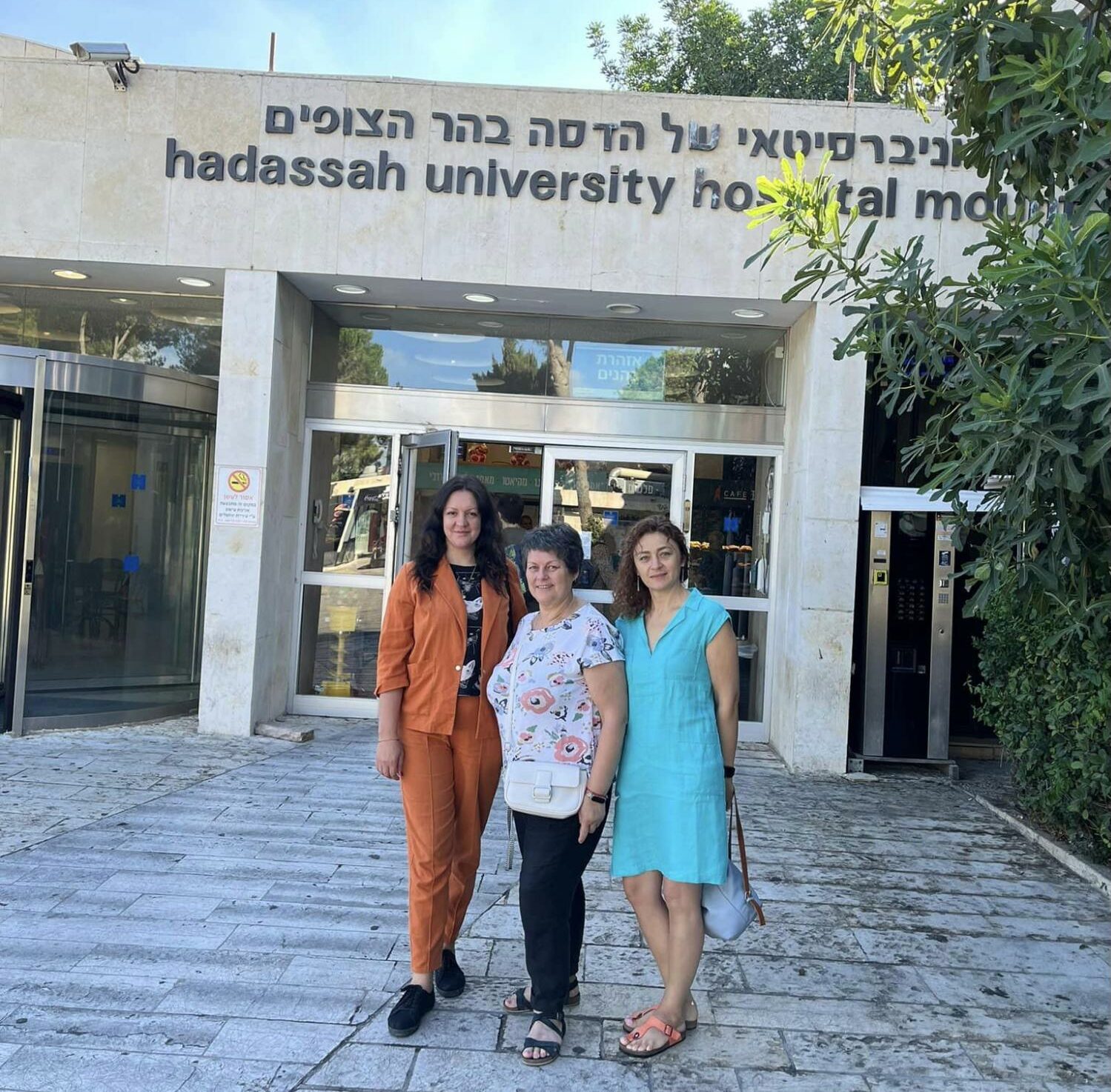
In the photo: Zoya Maksymova (far left) with colleagues at the Israeli medical center "Hadassah." Photo from Zoya Maksymova's archive
"Physicians from various departments can request palliative care for their patients, and the team can travel within the building to provide consultations. Other doctors are mindful that these patients are not their area of expertise," Zoya Maksymova explains.
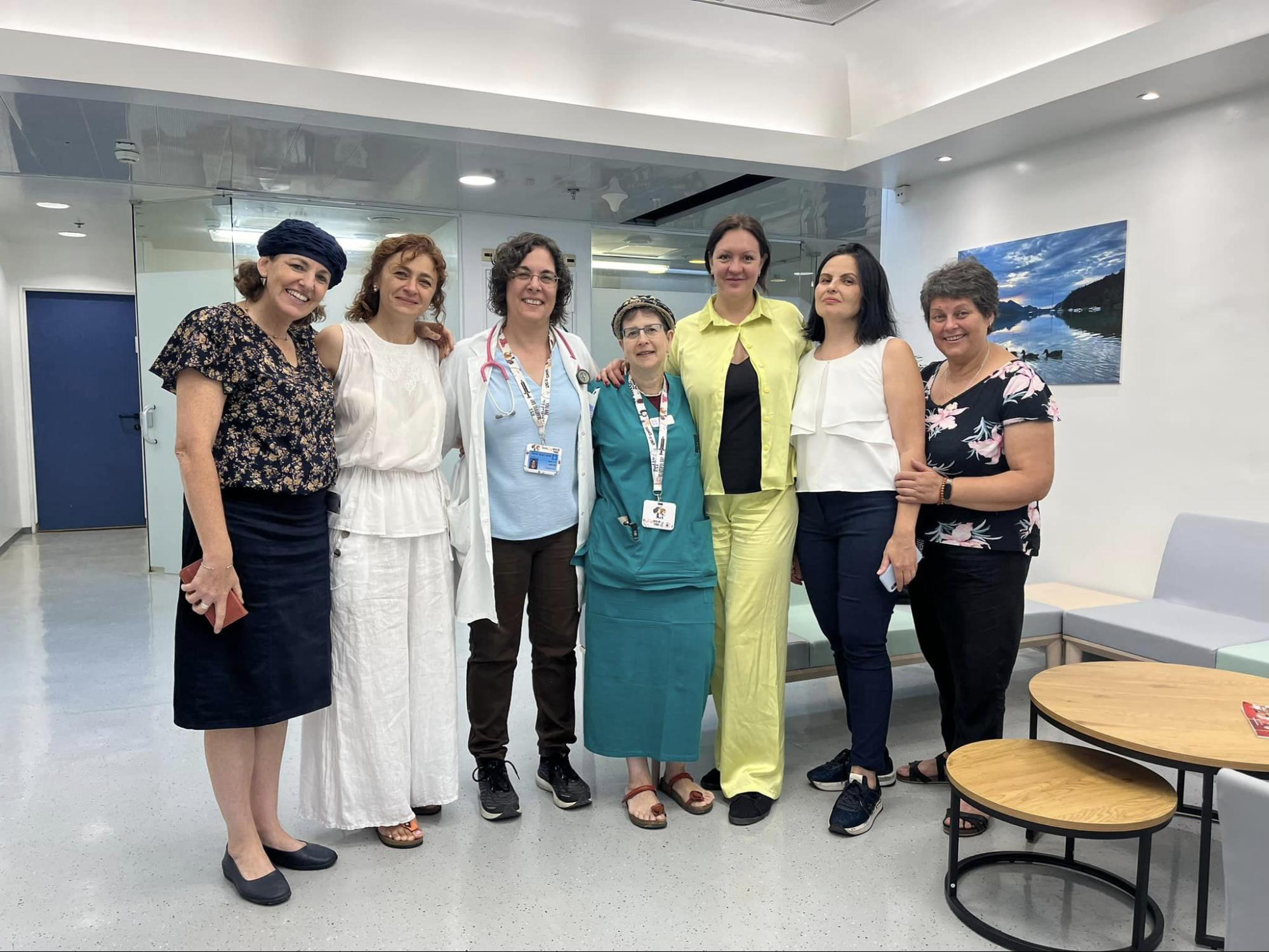
In the photo: Zoya Maksymova (in a yellow suit) with colleagues at the Israeli medical center "Hadassah." Photo from Zoya Maksymova's archive.
She adds, "In palliative care, the word "team" is the most important. It involves a psychologist, a social worker, and a nurse. This type of care is for patients undergoing a challenging phase in life where they need help managing symptoms like pain, breathing issues, bedsores, wounds, and stomas. That's why a team is necessary, as you can't just consult with the patient once and be done. They require ongoing monitoring and evaluation of their symptoms."
The psychologist's role is crucial as they must evaluate the patients' psychological well-being and assist their families.
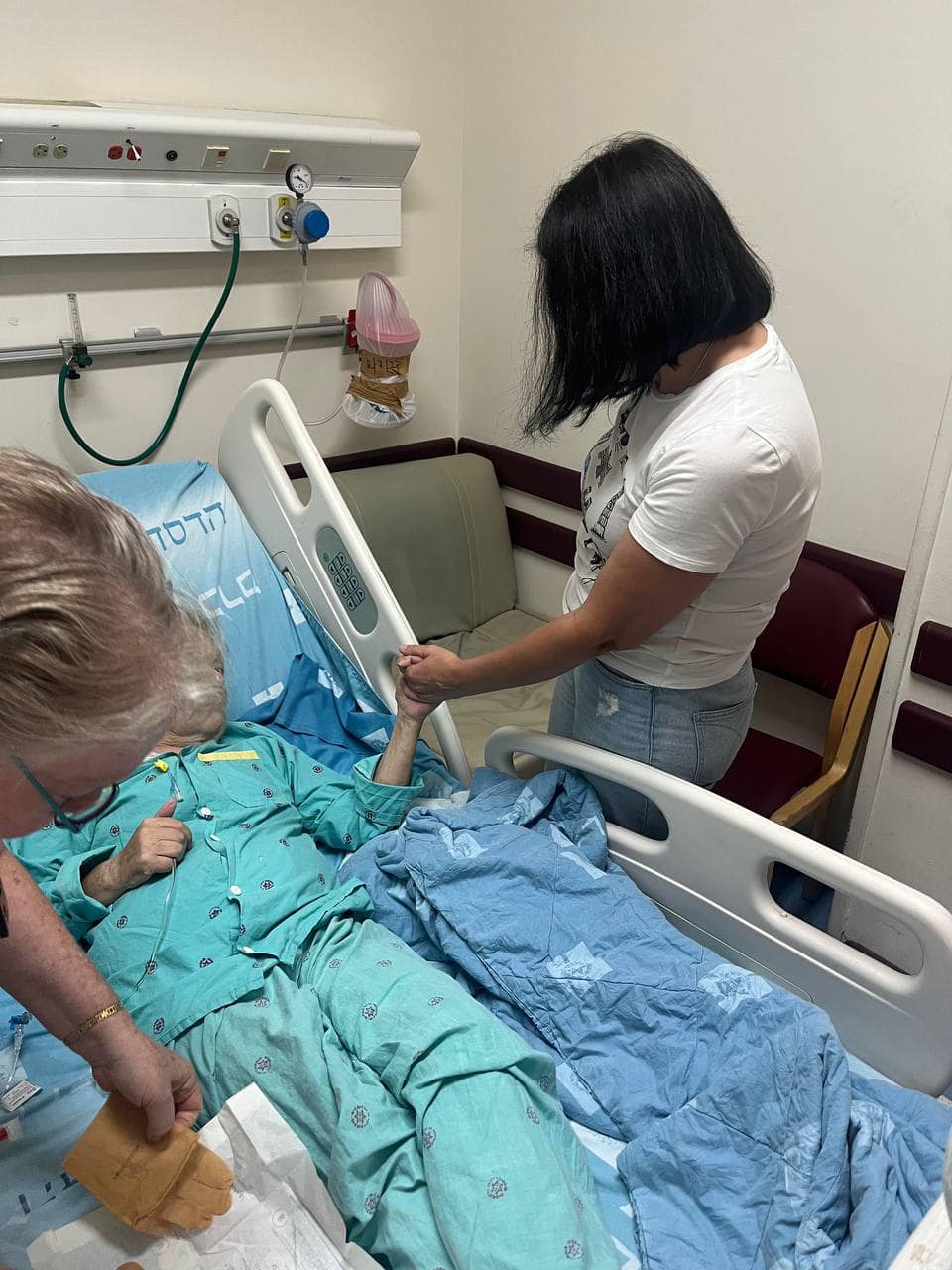
In the photo: Assistance to a palliative patient in the Israeli medical center "Hadassah." Photo from Zoya Maksymova's archive
"For instance, if a person is in a critical condition due to an oncological illness and has been informed that all radical treatments have been exhausted, it can be a difficult situation. While the patient may accept this reality, the family may struggle to come to terms with it. As a result, they may continue to seek treatment until the very end. In this case, it is crucial for the medical team, including the doctor, psychologist, and nurse, to regularly communicate with the family and explain that further treatment will only prolong suffering," the doctor says.
Zoya Maksymova also highlights the exceptional patient-centered mindset exhibited by Israeli doctors. This approach is adopted within the palliative care department of the SVOYI charity fund.
"I consider these things pretty ordinary – asking someone about their music preferences, playing their desired music even if they can't move, and inquiring about their movie interests; perhaps they have a particular person in mind to meet," Zoya mentions.

In the picture: Zoya Maksymova captured a moment from her internship at the Hadassah Medical Center where a volunteer, along with his dog named Skippy, visited the palliative care department and brought joy to the patients through playtime. This photo is from Zoya Maksymova's collection.
This is precisely how doctors in Israel talk to their patients. They inquire about their well-being, preferences, and dietary habits.
"They're really concerned about this patient, and not just in terms of medical treatment," Zoya Maksymova remarks.

In the photo: Assistance to a palliative patient in the Israeli medical center "Hadassah." Photo from Zoya Maksymova's archive
"We need to change our attitude"
The doctor also mentions that Ukrainian doctors have certain prejudices when it comes to palliative care. They may sometimes feel scared or uncertain about how to handle these patients.
Some individuals are in a very challenging state, lacking consciousness. However, even in such a condition, a person remains a person.
"Palliative care is all about respecting and preserving the dignity of the individual," emphasizes Zoya Maksymova.
She tells of one of her patients, a woman who was in a vegetative state and had a gastrostomy and tracheostomy. When she and another doctor entered the ward, Zoya greeted the patient. The other doctor then asked her in front of the patient's family, "Why are you bothering? She doesn't comprehend anything."
"I have always said that simply providing us with numerous gadgets or painkillers will not be effective in treating the patient as a human being, regardless of their incurable disease. The change in attitude towards the patient truly matters," she emphasizes.
"It's easier for them to treat these patients like they don't exist."
Zoya Maksymova also cites another phrase doctors can use for palliative patients: "How can I help you? Haven't you seen your diagnosis?"
"The patients acknowledged their diagnosis, but they also sought our assistance," stated the doctor. "We should not shy away from discussing it, as thankfully, these individuals are now being recognized."
Sometimes, when doctors are asked how many patients they have in need of palliative care, they may answer that there are none. However, Zoya Maksymova brings to their attention the set of criteria used to determine patients who need palliative care, and often, it becomes clear that there are actually such patients. The doctor mentions that these criteria are comprehensive and defined in Ukraine by the Ministry of Health's Order No. 1308, dated 04.06.2020.
According to Zoya Maksymova, her colleagues' behavior may be explained as follows: "It's sometimes easier to ignore these patients and act like they don't exist. Doctors should be trained to communicate with patients instead of telling them they have an incurable disease and that there's no hope of a cure. You can help in other ways. It is possible to alleviate a human's condition."
Sometimes, doctors may see the passing of a terminally ill patient as their own personal loss. Zoya Maksymova strongly believes that this perspective needs to be altered. She argues that peacefully leaving this world without experiencing pain and suffering brings relief to both the family and the individual.







